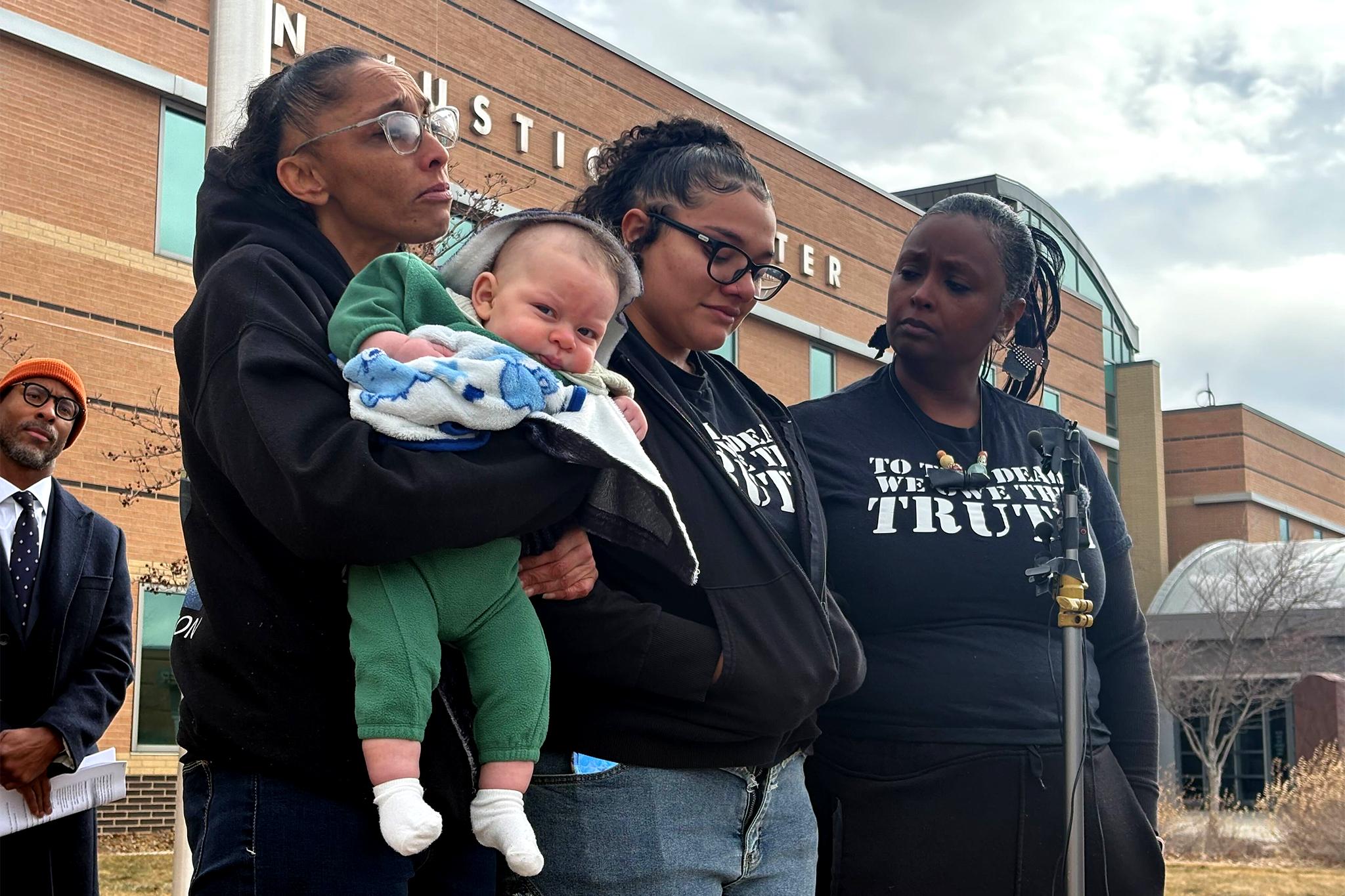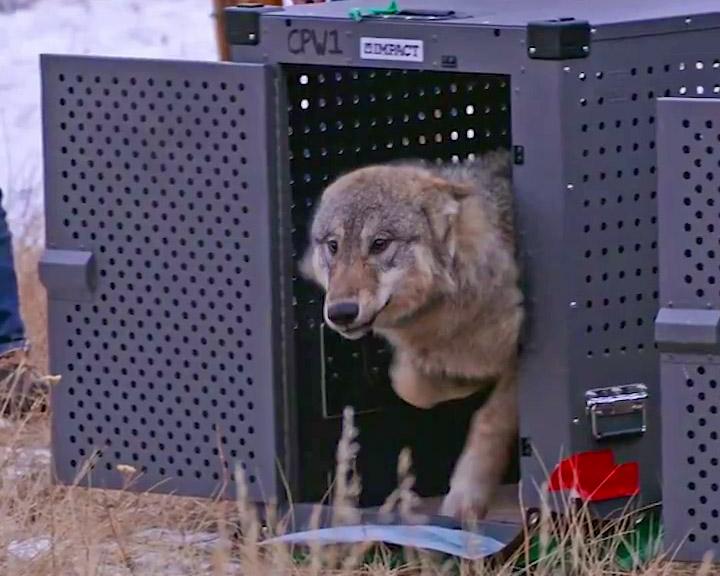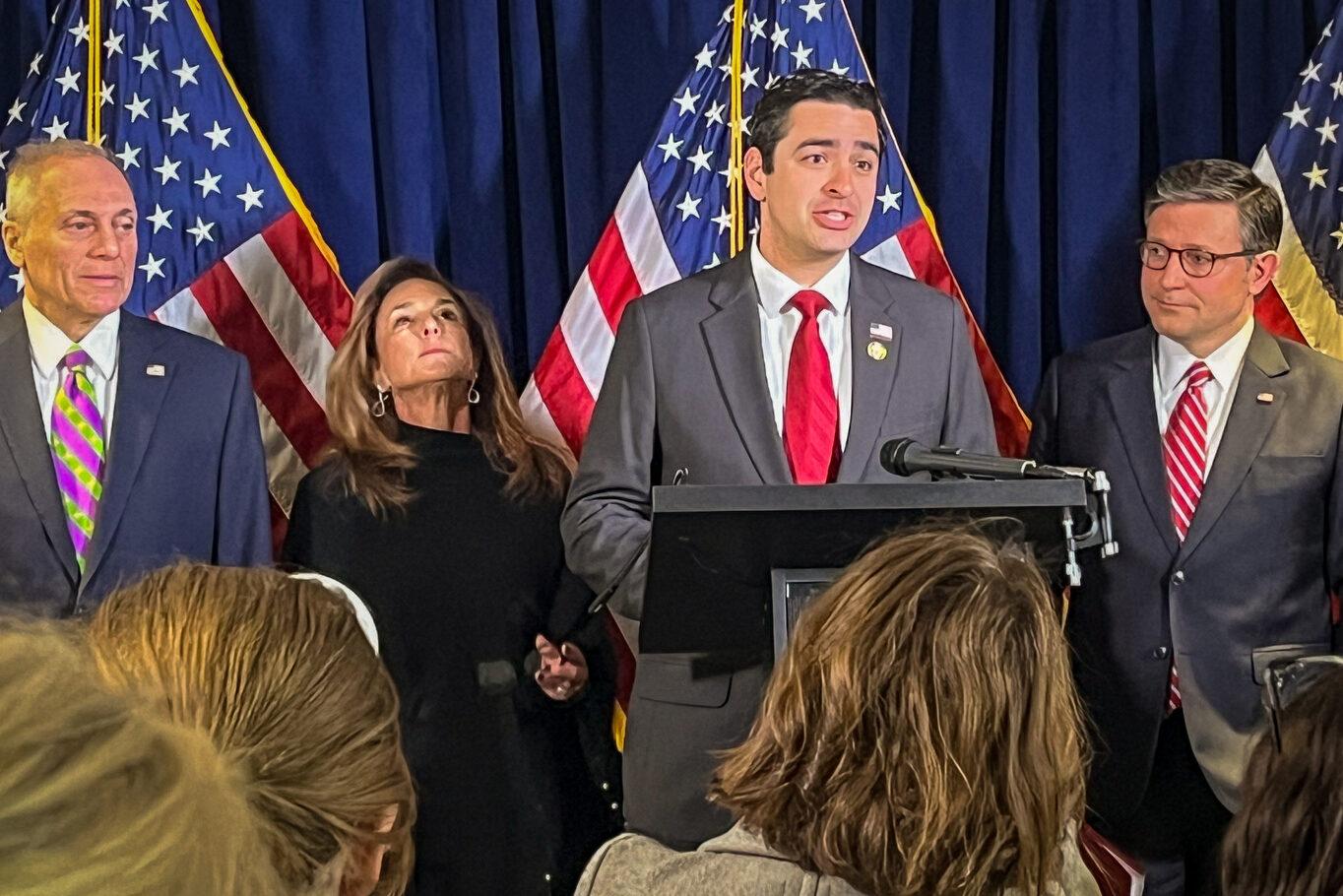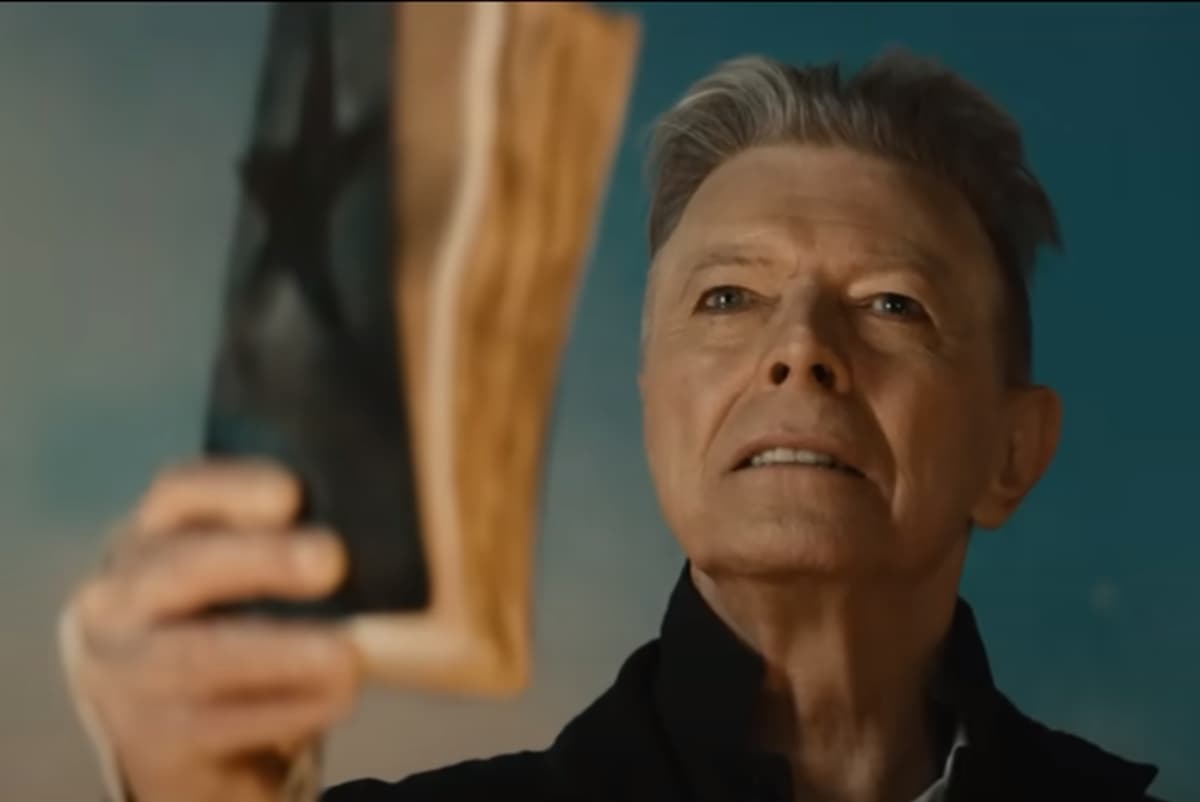
David Bowie had a keen eye for talent.
On more than one occasion, the late English singer startled an unsuspecting musician with an offer to collaborate.
“He called me on the phone, I'd never met the man,” said Gail Ann Dorsey, a gig musician who has worked with everyone from Tears for Fears to The National. “He just called me out of the blue and said he was doing a show with Nine Inch Nails, like a double concert, and he was putting together this band, and he thought that he would like to have me in the band as the bass player. And I was like, I couldn't believe it. Really, I was in shock.”
That was in 1995. Over the next 20 years, she and Bowie collaborated on three albums and several tours.
In 2014, jazz saxophonist Donny McCaslin got a similar invitation. He met Bowie through composer Maria Schneider during a workshop for the song, “Sue (Or In A Season Of Crime).”
“I remember speaking to David during the rehearsal, and at one point writing my phone number and email address in his black book,” McCaslin said. “The very next morning, he sent me an email.”
That encounter, McCaslin said, set him on a new path.
“It was just a wonderful moment, you know. Something that seems fantastical. And it was a precursor to this amazing experience that really changed my life.”
Now, these two musicians, alongside many others, are honoring Bowie’s final album, “Blackstar,” with the Blackstar Symphony. The tribute show features a 65-piece orchestra, led by McCaslin, members of his jazz quartet featured on the studio album, and Dorsey.
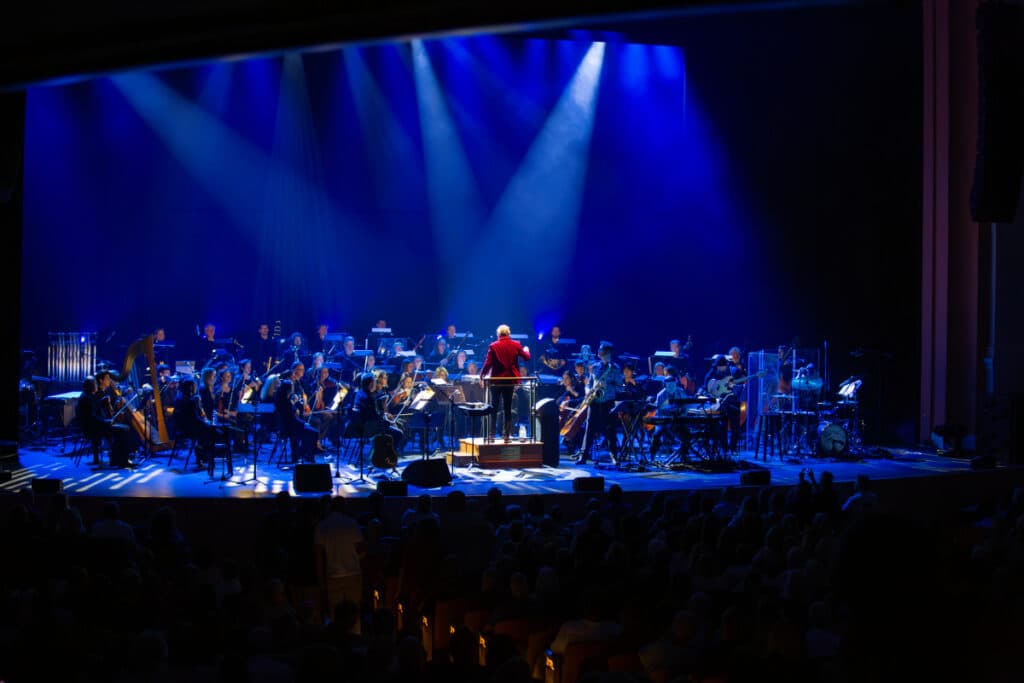
The setlist includes the seven tracks from “Blackstar,” as well as favorites like “Space Oddity,” “Life on Mars,” and “Heroes,” interspersed with anecdotes from McCaslin about how the songs came together in the studio.
The Blackstar Symphony comes to Denver’s Boettcher Concert Hall to perform with the Colorado Symphony on Thursday, Oct. 9. Tickets start at $54.40.
In anticipation of the show, we interviewed Dorsey and McCaslin about what it was like working with Bowie and what they love most about the traveling Blackstar Orchestra show.
This interview has been edited for length and clarity.
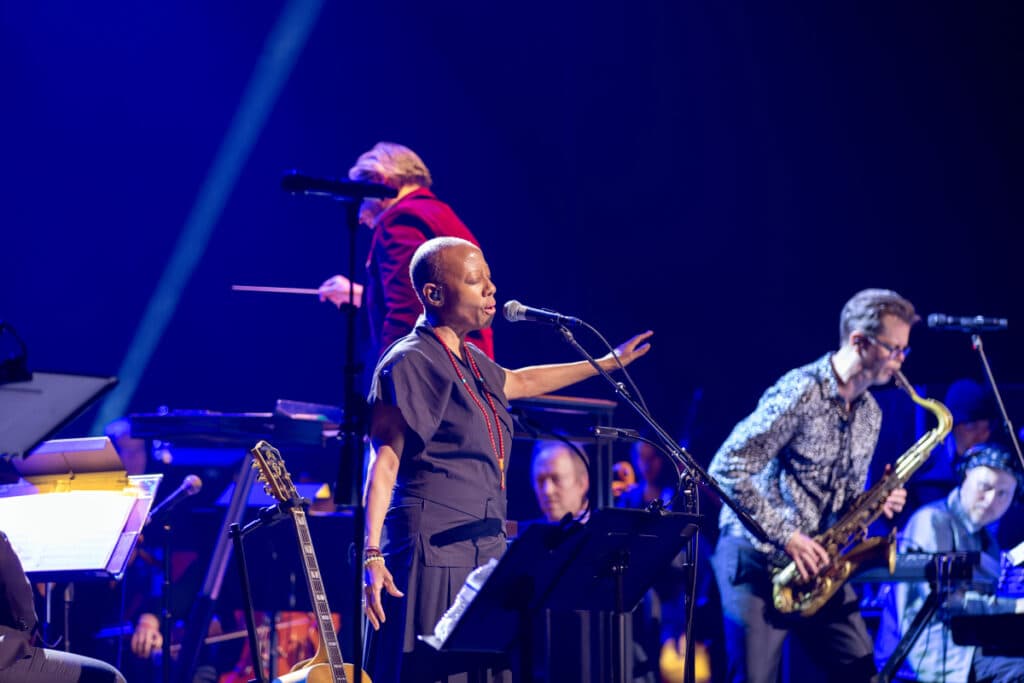
CPR: What was it like to work with Bowie?
Gail Ann Dorsey: It's one of the most unique working experiences of my career. I would say working with him, in terms of how much freedom and encouragement to be creative that he gave all of the people around him — not just musicians, but people who were making clothes or designing a stage or any kind of creative involvement with him — he chose people because he liked what he could see they could do.
He was more the kind of artist that tells you what he doesn't like, not what he wants you to do. So you had a chance to experiment and play and turn the beat a certain way. I think one of his greatest talents was exactly that — seeing a musician or an artist, and knowing what he enjoyed about what they did.
You're almost like a color of paint on an artist's palette. And he knows he needs all these colors to create what his end picture is. We don't really know, but we get thrown in and we just sort of figure it out. And it was always fun..
CPR: You can feel that in the music that was created. There’s a sense of play. I think a lot of artists, by nature, you kind of have to be obsessive. And I would guess that came out in certain ways, too.
Dorsey: I think the only thing he was obsessive about was not being bored (laughs). He could not stand to do the same thing twice.
When I first started with him, he was like, “I'm not doing any of the hits.” There was not a single hit, other than “Under Pressure,” in that first tour, the Outside Tour. Not one.
I was playing only these deep cuts that I didn't know, like “Joe the Lion” and “Teenage Wildlife” and these weird versions of “Andy Warhol”. And then when we did start doing the hits, he wanted to vary them. They weren't gonna be like listening to the records.
CPR: It’s been just about 10 years since “Blackstar.” Why bring it back now, in this form?
Dorsey: We've been doing this show since 2023. The more I do the show, the deeper it is for me. I mean, there are times I do my song, and by the time I'm off in the wings, I'm in tears.
It's intense to imagine him writing this music on his last days on earth, that was the most important thing to him. And I'm not surprised, because that's how he was. His whole life, he lived to create.
When I heard about this project, I thought, “He would love this. He would love to hear what they've done.” It's not just playing the songs from “Blackstar,” and the symphony is just playing like… the strings underneath.
(The Blackstar Symphony arrangements) are really rooted in the music. So it's almost as if it was written this way. And I really believe David would enjoy what has happened with this music.
Sometimes when we're doing Blackstar Symphony, I can imagine he's there in that room with us just grinning, happy, smiling. Excited by the music, as he often was.
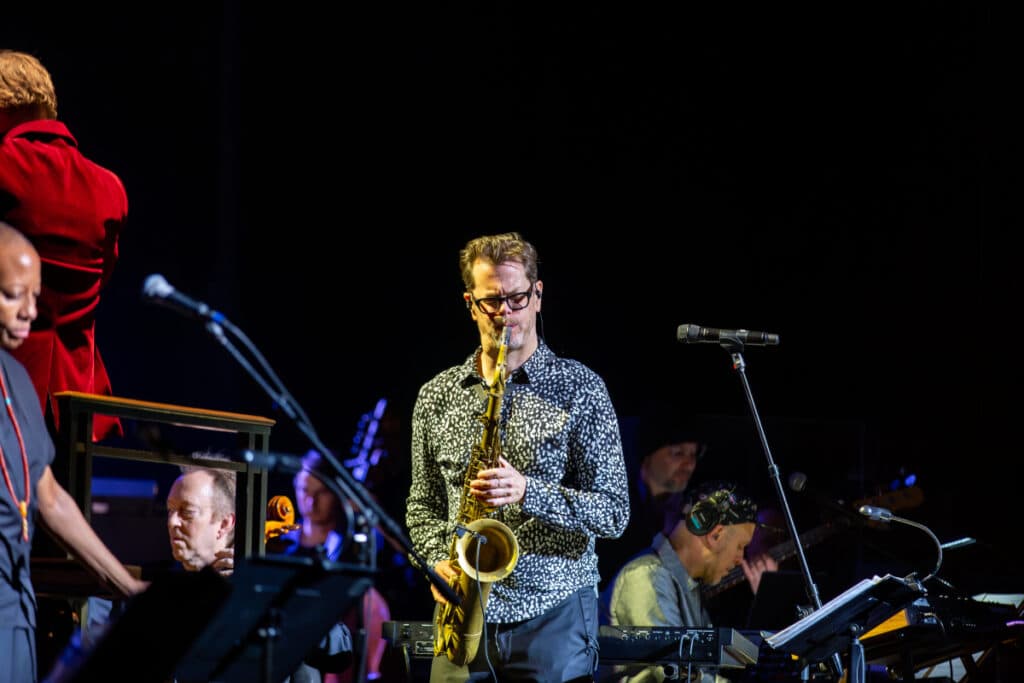
CPR: How did the Blackstar Symphony come to be?
Donny McCaslin: The Blackstar Symphony came into being when I was in Europe working with the Metropole Orchestra. That was music from a record of mine called “Blow.” And I wanted to include a couple of David's songs. One of those was “Look Back in Anger,” and the other being “Warszawa.” And I remember at the rehearsal when I heard “Warszawa” for the first time, it was just so utterly moving.
I remember sitting down to dinner with a conductor that night, Jules Buckley, and I said, “You know, wouldn't it be something to do ‘Blackstar’ with a full orchestra?” And that was the beginning of this project.
The idea was, if we're gonna revisit this music, it needed to be done on a grand scale, where the music is reimagined. It's just not a note-by-note performance of the record.
CPR: Part of the performance is you sharing anecdotes from the studio. To give folks a taste of that part of the show, may I ask for a peek behind the curtain at what it was like to reimagine "Sue (Or In a Season of Crime)"?
McCaslin: That particular song, we were in the studio with Maria Schneider's Orchestra, and David and Tony (Visconti) were in the control booth, and it was maybe five, six hours of us recording with Maria. And eventually the band was finished and she was editing two takes together… and I was gonna improvise over the piece. But before that, David came out to do a scratch vocal.
David sang just a couple notes, I think, just to check his levels. And then they ran the song from the top. And if you know that song, it's a — to me, it's a vocal tour to force — and it's, you know, eight and a half minutes. And he just sang it down from top to bottom and it sounded great.
I eventually found out that it was David’s scratch vocal that was the final vocal on that song, which to me was just remarkable.
CPR: There's a lot of lore surrounding “Blackstar.” Fans have widely interpreted the album as a parting gift or ritualization of Bowie’s passing. But it's been reported that he didn't know his illness was terminal until production was nearly complete. What's the truth of the matter? Was Blackstar an intentional farewell?
McCaslin: What I would say is, I think it's a situation where more than one thing is true. I mean, we certainly never talked about it as a parting, final record or anything in the studio.
Of course, when you listen to the lyrics, obviously, there's the theme of mortality. That brings “Dollar Days” to mind. It's just such a poignant lyric and such a beautiful performance on his part.
I remember Tony Visconti talking about, in an interview, that this was David's parting gift to his fans. And I totally get all that. But what is also true is that the last time I spoke to him, which was sometime in December before “Blackstar” came out, you know, David essentially said, “I'm writing some new music and would love to get into the studio with you guys in January.” So that was also true.
CPR: Let's end on a cliffhanger of sorts. It’s rumored that there are unreleased demos from Blackstar that were intended for another avant-garde album. Think they'll ever see the light of day?
McCaslin: In terms of unreleased tracks, what I would say is, there's a couple things I can see clearly in my mind that haven't seen the light of day yet. But I don't know if he finished the vocals or where it stands. I think there's not enough there for a full record, but there might be a few things.
We'll see what happens. I'd love to see it come out. I felt like all the material that we recorded was really strong, and it would be really great to have it see the light of day.

